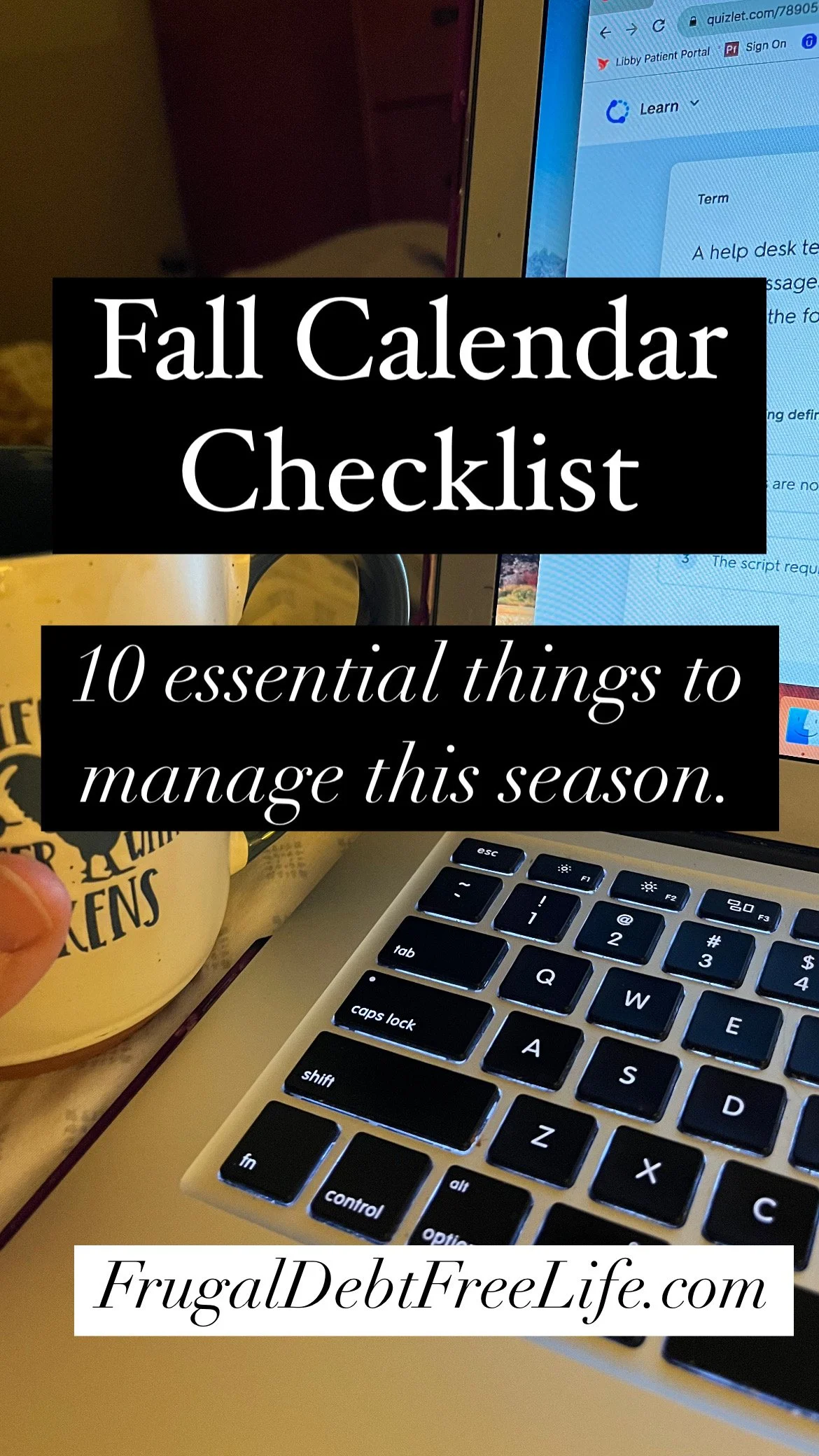How frugal people meet financial goals and save a lot of money: how to live debt free
/Let's talk about a few things frugal people do to achieve their financial goals.
I wanted to offer you some tips. These are some things that we do and some hard lessons that we've learned. Some of these come from advice given to us by other people who have lived a frugal life and achieved some of the goals that we want to achieve.
Because that's the thing if you have a goal and you see that someone else has accomplished it, ask them.
Track your expenses
I cannot express to you enough how important it is to track where your money is going. Because if you don't track where it's going, you'll wonder where it went.
My husband and I didn't realize how much wasteful spending we were doing until a few years ago. We participated in a no-spend month, one month. I don't necessarily think that no-spend months are the end-all, be-all that some people make them out to be. I think they're great to reset your mindset. For us it was great to see how we were wasting money. It's no coincidence that the month that we did that no-spend month was the month that we paid off my husband's final student loan. It was just the last little push that we needed, but by tracking every single expense, we realized where money was going and where we were being wasteful.
You can use an app like EveryDollar. You can use pen and paper. You can use a spreadsheet. There are lots of options. Just track what you're spending.
Make saving a habit
Don't tell yourself that you're just going to save whatever is left over after you pay your bills because there will never be anything left over. You have to prioritize it. You have to set aside money to save.
Start small
A comment that I get a lot on my videos is: "I don't have anything extra to save. There is nothing left." You don't have to start with something huge. Y'all, if it's five dollars that you put into your savings, that is five dollars that wasn't there when you started the month.
Don't think that it has to be hundreds or thousands of dollars. The debt-free community has kind of become a competitive atmosphere of how much we can pay off quickly and how much we can save. People post these big numbers. If that's not you, that's okay.
We're Team Tiny Shovel. We paid off $36,000 in two years, but that's basically what our income was. So we had to work really hard to pay that off on a lower income while having two babies.
So I understand what it's like to only be able to put a couple of extra dollars towards your bills or a few dollars into savings. But don't let that stop you. Don't let that be a reason that you don't prioritize saving.
Be honest about your bad habits and triggers
This is really hard and it takes a lot of soul-searching.
I told you this story before. Last fall, I found myself picking up my phone and looking on Amazon for stuff I didn't need. I had been in a rough mood all day and I was real snappy. When it was time to put my kids down for a nap, I picked up my phone and I started shopping. And then I put my phone down and I got up. It was a Sunday afternoon and my husband was home. I found him and I talked to him about what was bothering me. Because I realized that something had set me off. We were going through a grief process in our family and someone had said something in passing, not to me. They weren't even having a conversation with me. I just overheard it, and it got me thinking and I was sad. And I wanted to spend money to make myself feel better.
So you have to know what your triggers are.
Recognize your needs versus your wants
Paula Pant from the Afford Anything podcast says you can afford anything but not everything. That's why you have to have a hard talk with yourself about your needs versus your wants.
Here's the thing though: Not everyone's needs are the same. We all have our basic needs like food, shelter, a way to get to work, clothing, safety for our kids. But I also think that there are some needs that are singular to us, that don't apply to other people. That's 100% okay.
I had someone leave a comment recently saying that they didn't think a hot water heater was a need, and I firmly disagree. I know people for whom having a babysitter once a month or once a week so that they can go out with their spouse is a need because they want to really pour into their marriage, whereas my husband and I don't do that. We have date nights at home after our kids go to sleep. So your needs are going to look different from somebody else's. You don't all have to live the same life. I realize it's mind-blowing to some people, but you don't.
Others don't get to dictate what our needs are. But do not confuse that with entitlement. You can't have it all, and that money has to come from somewhere. You have to prioritize those needs over those wants.
Recognize that everything comes at a cost
That cost can be money. That cost can be time. That cost can be space in your home. Everything has a price and you have to determine if that price is worth it to you.
I hope these little tidbits were helpful to you. What are some lessons that you have learned on this path to saving money? Leave me a comment below and tell me about it.
























